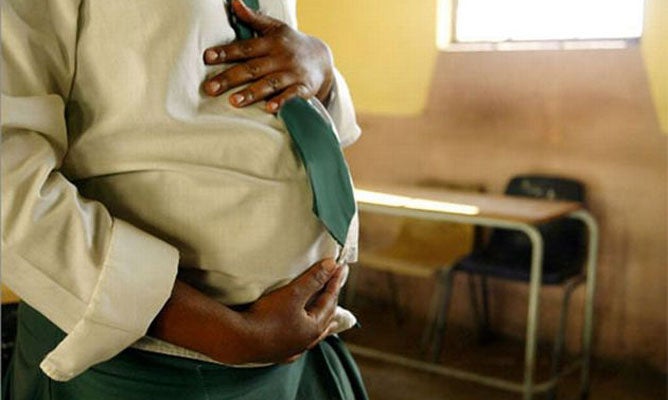Ending child marriage in Zimbabwe and protecting girls against the negative consequences of early marriage needs more than legislation and policies but a behavioural and mindset change in the communities, the United Nations Resident and Humanitarian Coordinator to Zimbabwe, Edward Kallon has said.
Kallon said this ahead of the commemoration of the Day of the African Child, which will be celebrated on June 16 under the theme: Eliminating Harmful Practices Affecting Children: Progress on Policy and Practice since 2013.
Child marriage is a global problem that cuts across countries, cultures, and religions and the UN resident coordinator said unless efforts were accelerated, an estimated 150 million more girls would be married by 2030.
In Zimbabwe, child marriages, according to the Domestic Violence Bill, are considered a form of gender-based violence.
“Girls in Zimbabwe are married early. By age 19, when most children are expected to be starting their university or tertiary education, over half of the girls in the country are already in marriage. This reduces their chances of realising their full potential in life as well as exposing them to other vulnerabilities like sexual and gender-based violence and poverty,” Kallon said in a statement.
“The prevailing socio-economic challenges, and the negative impact of Covid-19 pandemic on lives and livelihoods has exposed further existing vulnerabilities and caused further deepening inequalities, particularly gender inequality and spiking sexual and gender-based violence.”
Looking at the ‘enormity’ of the challenge of child marriages, the UN resident coordinator, said the UN Development System in Zimbabwe renewed its commitment to support, amplify the demands and voices of girls in the country to live free from violence, harmful practices including child marriages, HIV and AIDS.
“This requires an integrated approach where legislation is followed by strict and swift enforcement of the law,” Kallon said.
“Second, the UN Development System in Zimbabwe is committed for girls to stay in school, finish their school and be given opportunities to learn new skills towards the futures they choose. This requires making sure equal access to quality education and skills development.”
Kallon overemphasized the importance of having better education opportunities for girls, especially in secondary and tertiary education to enhance their wellbeing plus better future economic opportunities.
“Poverty is a major correlation of child abuse and exploitation, including child marriages. Girls in poorest communities are six times more likely to experience child marriage than their counterparts in higher wealth quintiles,” he said, highlighting a generation of activists to accelerate social change was also required.
“Ending child marriage in Zimbabwe and protecting girls against the negative consequences of early marriage needs more than legislation, policies, and project design. It needs behavioural and mindset change in the communities. I call on community leaders and influential elderly men and women, as well as boys and girls to advocate in their communities to end child marriages. Let us make sure there is zero tolerance to child marriages,” Kallon said.
“Finally, scaling up services and information about the services such as the ‘one stop centre’ initiative which provides essential and quality medical and psychosocial services to survivors. It is known that a survivor of sexual and gender-based violence requires many different types of services: police services, health care, legal service, and psychosocial support.”
The right to ‘free and full’ consent to a marriage is recognised in the Universal Declaration of Human Rights – with the recognition that consent cannot be ‘free and full’ when one of the parties involved is not sufficiently mature to make an informed decision about a life partner.
“The practice of child marriage further perpetuates the unrelenting cycle of gender inequality and often increases their risk of violence. Girls who are married young are at risk of rape and physical violence as they lack power in relation to their husbands and in-laws,” Kallon said.
The 2030 Agenda for Sustainable Development and its 17 Sustainable Development Goals (SDGs) embody a roadmap for progress that is sustainable and leaves no one behind.

